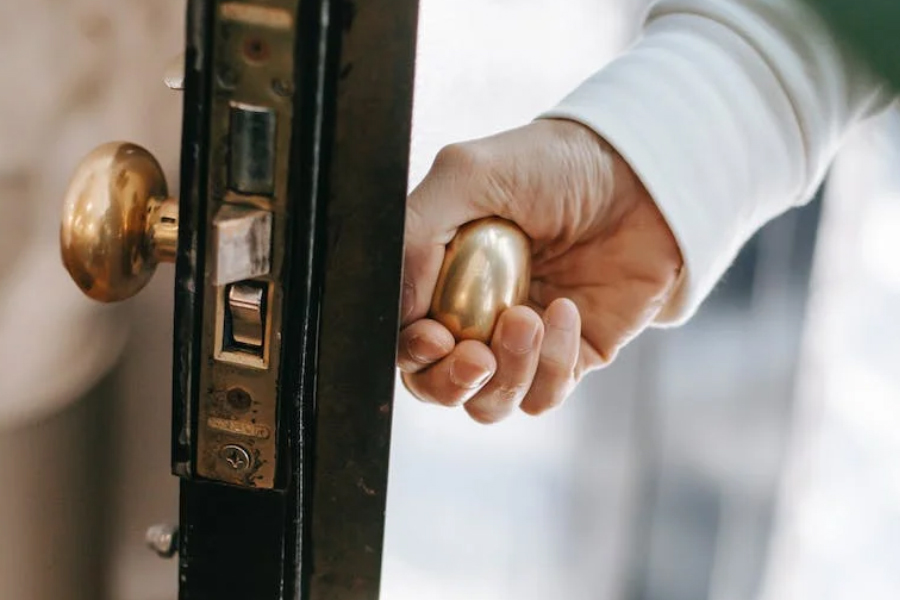
Image Source: www.pexels.com
Imagine holding the key to your new building’s security, literally. You’re about to unlock the importance of locksmiths in the construction sector. They’re not just key makers, but vital contributors to your project’s safety.
Dive into master key systems, explore high-security locks, and glimpse into the future of locksmithing. So, let’s turn the key and step into a world where security is built from the ground up. Take the initial step towards securing your commercial properties.
The Role of Locksmiths in Construction
In the construction industry, a locksmith’s role is not just essential but integral to ensuring the security and integrity of the whole structure. Their duties will extend beyond simple key duplication. They secure the entire structure of your commercial and residential properties during construction. They embed security in the framework, so your property can withstand the test of time, and keep you safe.
Looking for a locksmith in Denver area? Check out EZ Locksmith for supreme security measures.
Importance of Security in Building Design
A locksmith in the construction industry, doesn’t provide security after the construction, instead they act as an integral part of the building design process from day one.
Their expertise contributes to the blend of Security Aesthetics and functionality, creating a safe yet visually pleasing environment. It’s not mere locks and keys; it’s about integrating crime prevention design into the architectural plan.
They are not just securing doors, but the entire structure, ensuring safety without compromising the building’s appeal. Your work plays a crucial role in deterring crime.
Master Key Systems: A Locksmith’s Contribution
While they are integrating security features from the onset, Their expertise as a locksmith also shines in creating master key systems, a crucial component that enhances both the efficiency and security of the building. By carefully designing these systems, a locksmith tackle the Key Duplication Dilemma head-on, ensuring unauthorized copies don’t compromise the building’s security.
Master key systems offer controlled access to different areas of the building, while maintaining a key that can open all locks. However, there are Master Key Misconceptions that it weakens security. On the contrary, it consolidates security and simplifies key management.
A skilled locksmith, play a vital role in debunking these misconceptions and ensuring the master key system serves its purpose effectively.
Upgrading Security With High-Security Locks
Beyond the implementation of master key systems, a locksmith’s role extends to the installation of high-security locks, a crucial security upgrade that significantly reduces the risk of unauthorized entry.
With the advent of Digital Lock Advancements, locksmiths are not just dealing with standard locks, but also with smart locks that can be controlled remotely. These locks offer a superior level of security and convenience, presenting a significant improvement over traditional locks.
Furthermore, Keyless Entry Innovations have revolutionized access control, offering an even higher level of security. These systems, often using biometric or RFID technology, eliminate the need for physical keys, making it nearly impossible for unauthorized persons to gain access.
It’s crucial to stay updated with these advancements and incorporate them appropriately to improve security.
The Future of Locksmithing in Construction
Looking ahead, you’ll find that the future of locksmithing in construction is rapidly evolving, promising exciting advancements in security technology.
Embrace the wave of Smart Lock Integration, where locks can be controlled remotely, providing a new level of convenience and control. Imagine the ability to grant access to construction sites from anywhere in the world, even scheduling access for certain times.
In addition, biometric lock advances are pushing the boundaries of security even further. You’ll no longer rely on keys or codes. Instead, your unique biological features, such as fingerprints or retinal scans, become the key. This offers an unprecedented level of security, drastically reducing the risk of unauthorized access.
The future of locksmithing in construction is here, and it’s smarter and safer than ever.
Conclusion
So, when you’re constructing your next building, remember the humble locksmith. They’re more than key cutters – they’re security architects, helping to design a safer future.
From master key systems to high-security locks, their work is integral. And as technology advances, their role in construction will only grow.
Coincidentally, the next time you turn a key, you might just feel a newfound appreciation for these unsung heroes of building security.

